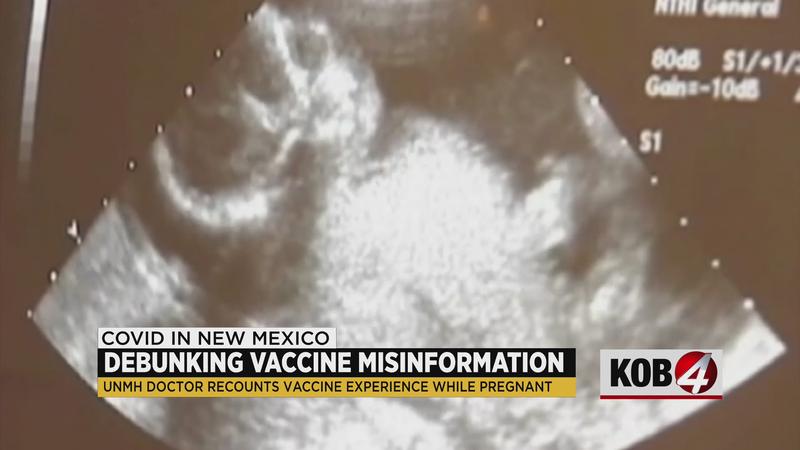UNMH doctor debunks myths about COVID-19 vaccine and pregnancy
[anvplayer video=”5048743″ station=”998127″]
ALBUQUERQUE, N.M. – The New Mexico Department of Health has reported 1,400 pregnant COVID cases so far — and two pregnant women have died of COVID-19.
So far, just over 20% of pregnant women are vaccinated nationwide.
“We were having women come in pregnant with COVID and they were very very sick. Some of those women had to be intubated, some of those women spent time in the ICU. Many of those women had to deliver their baby early, and so their babies faced all of the risks of NICU, and early delivery,” said Dr. Brenna McGuire, an OBGYN at UNM Hospital.
While most people were encouraged to stay home if they could, McGuire was on the front lines and was 30 weeks pregnant when she got vaccinated.
McGuire, and other health care experts, said it’s riskier to get COVID-19 than it is to get vaccinated.

“I made the choice personally because I reviewed the research, the literature, I wanted to protect myself because I had seen the severity of the disease in people who are pregnant, and I felt like I was at much higher risk and my baby was at much higher risk of poor outcomes if I got COVID, and I was exposed to COVID almost every day,” said McGuire.
McGuire said studies haven’t shown any concerns about the COVID vaccine causing infertility, but the virus can lead to other problems.
“There’s actually a significant finding that a lot of women’s menstrual cycle will become irregular after they’ve had a serious case of COVID,” said McGuire.
She said getting the vaccine has benefits for the baby too.
“One of those benefits being that your body creates antibodies to COVID those antibodies pass through the placenta to your baby, and actually serve as a vaccine for your baby,” McGuire said.
And that’s especially important because babies can’t get vaccinated yet.
“Exactly so there’s you know limited studies right now looking at vaccines, especially in the infant population, and so there’s really no, no opportunity for your young child to get vaccinated until they’re older. And so this really serves as sort of the only way to pass COVID antibodies to your baby,” McGuire said.
Another is through breast milk.
“I have a three-year-old as well, who unfortunately isn’t vaccinated yet. And I feel like he’s the one member of my family who isn’t protected as well from this, so I’m grateful that I have the opportunity to be vaccinated,” said McGuire.